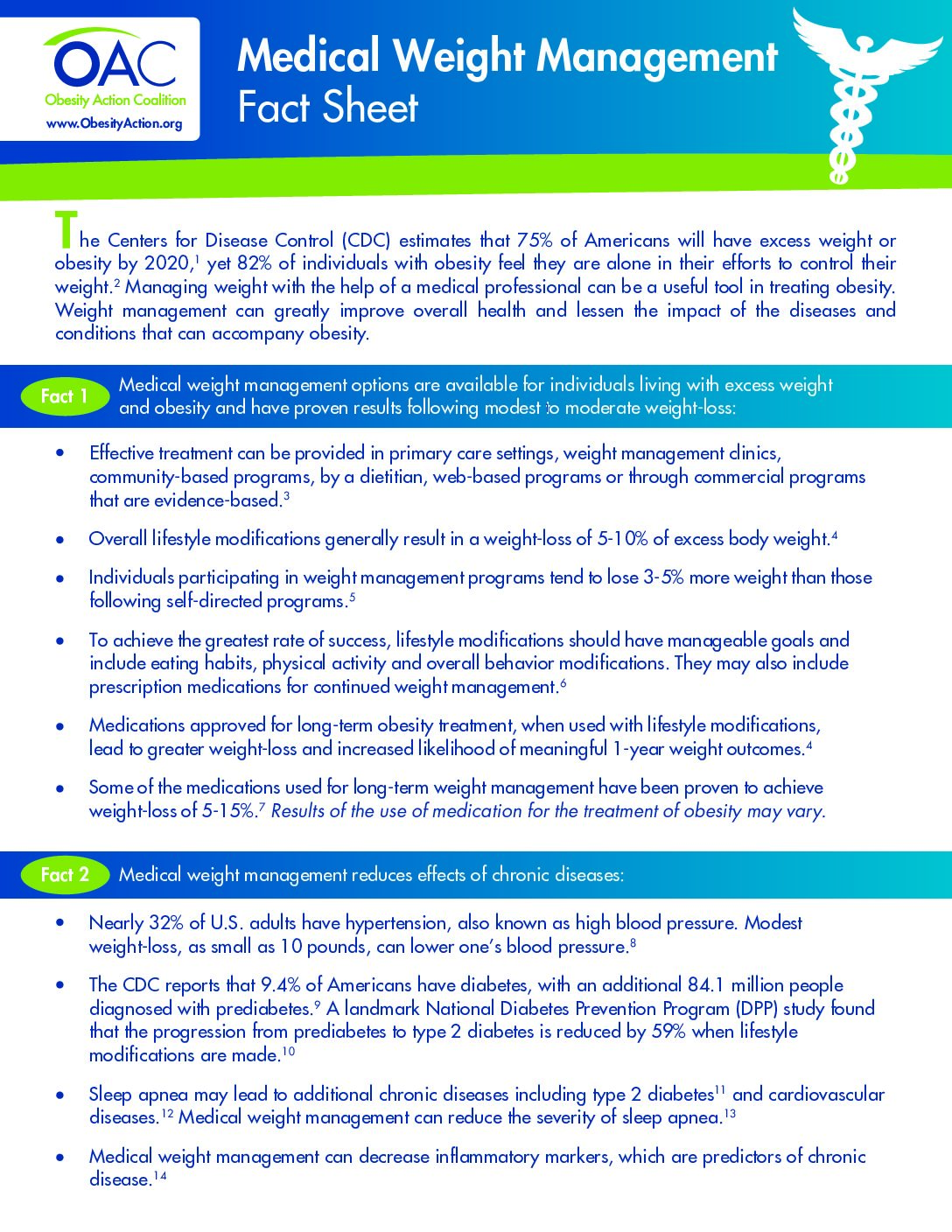Obesity is a medical condition characterized by excessive body fat. It can significantly increase the risk of various health issues.
Obesity has become a pressing global health concern with widespread ramifications on individual well-being and healthcare systems. Characterized by an excess of body fat, obesity contributes to a heightened risk of chronic diseases such as heart disease, diabetes, and certain cancers.
Its prevalence has been rising steadily, making it a public health priority for intervention and education. Contributing factors include a sedentary lifestyle, poor dietary choices, genetic predisposition, and environmental influences. Tackling obesity requires a multifaceted approach, which includes promoting nutritious diets, physical activity, and access to healthcare resources. Recognizing and addressing the causes of obesity are essential steps towards reducing its impact on both the personal health of individuals and the broader society.

Credit: www.pm360online.com
The Gravity Of Obesity
The world faces many health challenges, but few are as far-reaching as obesity.
Obesity is a heavy burden on global health.
Global Prevalence
Across borders and oceans, obesity touches lives in every corner.
- Millions struggle with its impact daily.
- High-income countries report higher rates traditionally.
- Low to middle-income regions see rapid increases.
Health Risks And Complications
Carrying extra weight can lead to serious health issues. Let’s look at a few:
| Condition | Relationship to Obesity |
|---|---|
| Heart Disease | Extra fat strains the heart, raises blood pressure. |
| Type 2 Diabetes | Cells become resistant to insulin. |
| Joint Problems | Added weight puts pressure on hips, knees. |
| Sleep Apnea | Fat around the neck can block airways. |
Prevention and treatment are critical in managing these risks.
Busting The Blame Game
Many people think obesity is due to bad choices or weak willpower. This idea is not always true. Body weight is complex. It involves genetics, the environment, and personal habits. Let’s uncover facts about obesity and stop blaming people unfairly.
Genetics Vs. Lifestyle
Obesity is not only about lifestyle choices. Genes play a role too. Some people are more likely to gain weight because of their DNA. Others stay thin more easily. It is important to remember this. We should understand everyone is different.
- DNA can affect hunger hormones.
- Some bodies burn calories slowly.
- Weight gain is easier for certain people.
Calories In, Calories Out Simplification
Eating more calories than you burn leads to weight gain, right? This idea is too simple. It’s called the “calories in, calories out” model. But our bodies are not machines. How we digest food and use energy can be different for each person.
| Not Just About Food | Not Just About Exercise |
|---|---|
| Hormones affect hunger | Fitness impacts how we burn calories |
| Some foods make us feel full longer | The type of activity matters |
Diet Myths Debunked
Misinformation surrounds obesity and how to tackle it. Understanding the truth about food and diets is key. This section breaks down common myths. Let’s separate fact from fiction.
Low-fat Foods As A Cure-all
Many believe low-fat equals healthy – not always so.
- Low-fat foods often contain added sugars.
- They may lead to over-eating due to reduced satiety.
- Healthy fats are essential for body function.
Balance is crucial. Seek nutrient-rich, whole foods over processed low-fat options.
Quick Fixes With Fad Diets
Many fad diets promise fast results. They rarely work long-term.
| Fad Diet | Shortcoming |
|---|---|
| Detox Cleanse | Lacks essential nutrients, not sustainable. |
| Magic Pill | May cause harm, no real food changes. |
| Extreme Carb Cutting | Can lead to fatigue, ignores body’s energy needs. |
Sustainable habits beat quick fixes. Aim for diets that promote variety and moderation.

Credit: www.obesityaction.org
Exercise Misconceptions
Exercise Misconceptions can create hurdles in the journey to overcoming obesity. Many believe that certain conditions must be met to lose weight. Let’s debunk some myths about exercise and weight loss.
Gym Membership Equals Weight Loss
Simply signing up for a gym membership won’t melt away the pounds. Weight loss involves a combination of frequent physical activity and good dietary choices. Many factors contribute to successful weight management. These include:
- Regular exercise routine
- Balanced diet
- Consistent lifestyle changes
Regular usage of the gym facilities and active participation in workout sessions is the key.
No Sweat, No Benefit
The idea that you must sweat to see progress is misleading. Weight loss depends on creating a calorie deficit. This means burning more calories than you consume. All types of physical activities can contribute to this equation. These include:
- Walking
- Swimming
- Yoga
Different exercises provide varying benefits. Consistency and moderation are often key to a sustainable weight loss journey.
The Societal Factors
The Societal Factors play a pivotal role in the complex issue of obesity. These factors shape our environments. They affect our choices. They sometimes dictate our health outcomes. We now look at two such areas.
Food Deserts And Accessibility
Food deserts are areas with limited access to affordable and nutritious food. They are common in rural and low-income urban areas. People living in food deserts face barriers to healthy eating. Here are key points:
- Lack of supermarkets or farmers’ markets in neighborhoods.
- High prevalence of fast-food outlets and convenience stores.
- Long travel distances to purchase fresh produce.
- Greater reliance on processed and unhealthy foods.
These factors contribute to poor diets. They lead to higher rates of obesity in these communities.
Socioeconomic Status Correlation
Studies show a link between socioeconomic status (SES) and obesity. People with lower SES may experience:
| Socioeconomic Factor | Impact on Obesity |
|---|---|
| Limited food budget | Choice of cheaper, higher-calorie foods |
| Lower education levels | Poorer nutrition knowledge |
| Stress from economic uncertainty | Increased stress eating and weight gain |
| Limited access to health care | Fewer resources for weight management |
This table shows the patterns. It reflects the reality many face. This is a critical piece of the obesity puzzle. It’s clear that the fight against obesity is also a fight for equity in society.
Mind, Mood, And Obesity
The relationship between our mind, mood, and obesity is complex. Often overlooked, this aspect is crucial in understanding the full obesity picture. Our emotions and mental state can significantly influence eating behaviors and weight.
Stress Eating: Fact Vs. Fiction
Stress eating is not just a phrase, it’s real. It’s the act of eating food for comfort, not hunger. Under stress, our bodies produce cortisol, which can trigger cravings for sugary, fatty, or salty foods.
- Fact: Stress can increase appetite.
- Fact: Comfort foods can temporarily reduce stress.
- Fiction: Stress eating is helpful for everyone.
- Fiction: Stress eating is the only way to cope with stress.
Eating for comfort occasionally is normal. But it shouldn’t be your only stress-response tool. Let’s look for healthier ways to manage stress.
The Weight Of Mental Health On Obesity
Mental health and obesity are deeply intertwined. Certain mental health issues, like depression and anxiety, can lead to obesity or worsen it.
| Condition | Impact on Obesity |
|---|---|
| Depression | May increase weight gain through emotional eating or lack of energy for activity. |
| Anxiety | Can lead to irregular eating patterns and excessive concern about weight. |
Good mental health can be a powerful ally in managing one’s weight. Seeking help for mental health issues is as important as following a diet or exercise plan.

Credit: www.news-medical.net
Frequently Asked Questions On Which Of The Following Is True About Obesity
What Is True About Obesity?
Obesity is a medical condition involving excess body fat, increasing health problems risk. It typically results from a combination of poor diet choices, lack of physical activity, and genetic factors. Effective management includes lifestyle changes, healthy eating, and exercise.
What Is A Fact About Obesity?
Obesity is a medical condition characterized by excess body fat. It increases the risk of diseases like type 2 diabetes, heart disease, and certain cancers.
Which Of The Following Statements Is True About The Obesity Levels In America?
Obesity levels in America are significantly high, with nearly 42% of adults considered obese as of 2021.
Which Of The Following Accurately Defines Obesity?
Obesity is a medical condition characterized by excessive body fat that poses health risks. It’s often measured using the body mass index (BMI) scale.
Conclusion
Navigating the complexities of obesity requires understanding its multi-faceted nature. This condition, influenced by genetics, lifestyle, and environmental factors, impacts health profoundly. Awareness and proactive measures can lead to better management and prevention. Let’s prioritize knowledge and action to combat this global health challenge effectively.


